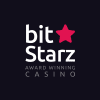Published this week, the ‘Summer of Sports 2024’ report details players’ betting activity throughout this summer. This period includes major events such as Euro 2024 and the Olympic Games in Paris, France.
Kansspelcommissie released figure for new players, with the average number of new online users during Euro 2024 at 1,031. This is lower than both the 2022 World Cup (1,487) and Euro 2020 (1,175). New online accounts fell from the 3,961 daily average at the 2022 World Cup to 3,298 this year. However, this did surpass the 3,022 daily average during Euro 2020.
Euro 2024 fails to match betting heights of World Cup 2022
Stand-out findings include a decline in the average number of online players active per day during Euro 2024. This stood at 196,952 for this year’s tournament, compared to 219,971 for the 2022 World Cup. It was, however, more than the 191,434 for Euro 2020, which took place in the summer of 2021 after being delayed due to the pandemic.
Players aged 21 to 29 were the most active, with this group accounting for 31% of actives during Euro 2024. Some 26% were 30 to 39 while 17.2% were aged 40 to 49.
As for spending, the average total amount wagered online during the tournament was €8.6 million (£7.2 million/$9.3 million). Average daily winnings topped €7.5 million, with operator gross gaming revenue (GGR) at €1.1 million.
The Belgian national team’s group stage game against Slovakia drew the most interest. In total, €14.9 million was bet on the match, with players winning €7.4 million and operators turning €7.6 million in revenue.
Olympics betting interest limited in Belgium
As for the Olympics, while there was some interest among players in Belgium, it was nowhere near the level of football wagering.
The Paris 2024 Olympic Games ran from 26 July to 11 August. During this period, the daily average of online players was 134,745, compared to 196,952 for Euro 2024 a few weeks prior.
Players aged 21 to 29 were again most likely to be online, accounting for 29.6% of all actives in this period. The 30-39 age group followed with a 27.3% share, then 40-49 on 19.2%.
On average, players in Belgium spent €6.1 million per day betting online on the Paris 2024. From this, they won a daily average of €5.5 million, with operator GGR at €546,858. The men’s hockey match between Belgium and Spain drew the most bets at €7.8 million.
As was the case with Euro 2024, offline betting was far less popular among consumers. The Olympic daily average spend was €1.6 million, with winnings at €1.2 million and operator revenue €379,395.
Spending was significantly lower for land-based betting, with average daily spend in Belgium at €1.9 million. Winnings hit a daily average of €1.4 million and operator GGR €471,686.
Kansspelcommissie reports only minimal self-exclusion requests
The report also includes information about self-exclusion requests throughout the summer of sport. This covers both the online and land-based markets in Belgium.
For Euro 2024, the daily average was 37 self-exclusion requests, while an average of 13 players each day asked for limitations to be lifted. Requests figures were slightly lower for the Olympics, with a daily average of 34, although removal requests were higher at 16.
Kansspelcommissie also said during Euro 2024, a daily average of 808 excluded players were blocked from accessing online gambling websites and 29 from betting shops. For Paris 2024, an average of 647 online players were blocked each day, with land-based refusals at 24.
BAGO praises responsible gambling efforts
Responding to the report, BAGO, the organisation of private gambling operators in Belgium, acknowledged the declines. However, chairman Tom De Clercq said this could be down to improved responsible gambling measures put in place by licensees.
“This downward trend points to a strong responsibility of the licensed operators and their efforts to promote responsible gaming behaviour,” De Clercq said.
“In addition, our own data shows the vast majority of players enjoyed themselves in a recreational and responsible manner this summer. After all, our operators did not observe an increase in problematic gaming behaviour.
“The number of players also fell significantly after the sports summer. This indicates that most were only recreationally active on our platforms during this period. Expectations for the entire year even indicate a general cooling of the sports betting market.”
BAGO echoed Kansspelcommissie’s call to tackle illegal online gambling. In the report, the regulator states illegal operators are “omnipresent” in Belgium and pose a threat to players. Both organisations have pledged to step up the fight against illegal operators.
“Recent figures show that no less than 60% of the Belgian gambling market consists of unlicensed providers,” BAGO vice chairman Emmanuel Mewissen said.
“Illegal operators use aggressive digital marketing and clever tricks on social media to circumvent the vigilance of users. They attract more and more players, especially young people, to illegal websites through life stories, videos, influencers and the use of well-known brands without permission.
“We therefore advocate stricter control measures aimed at the illegal market. This includes a strengthening of Kansspelcommissie and a targeted approach to payment transactions in order to effectively combat the illegal sector.”












